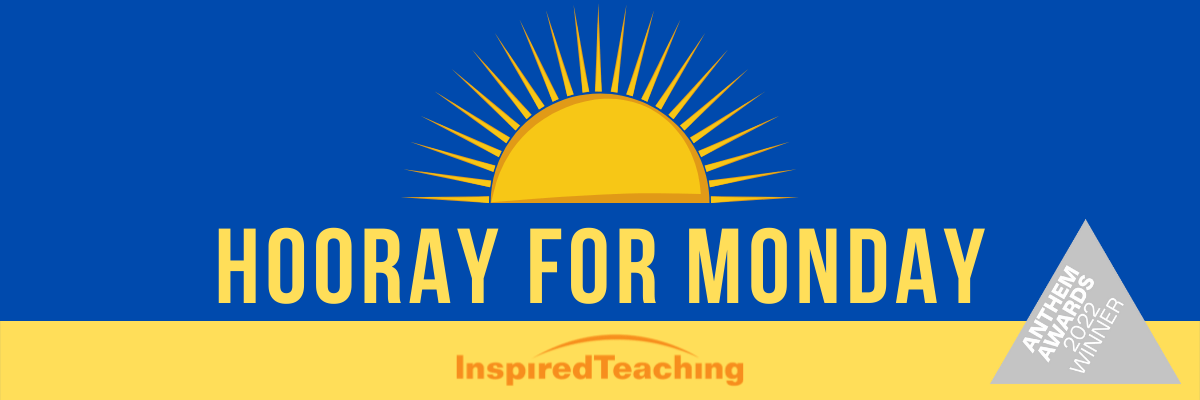March 28, 2022
By Aleta Margolis, Founder and President, Center for Inspired Teaching
Hooray for Monday is a weekly blog filled with questions, ideas, reflections, and actions we can all take to remodel the school experience for students.

I was recently reading a novel in which a young boy asks his uncle, an artist, to teach him to paint. The boy picks up his uncle’s brushes and begins painting a canvas. He asks his uncle for corrections on his work. The uncle responds, “You know what you’re doing. You don’t need my help.” The child smiles at his uncle then continues to paint with increasing confidence and skill.
Children need to hear, from an adult they respect and admire, “You know what you’re doing. You don’t need my help.” And they need to hear it often. “You’ve got this!” is a powerful thing to say to a child.
Student As Expert is the second of Inspired Teaching’s 5 Core Elements. This week I interviewed Jaqueta Abbey, who teaches first grade at Durham Academy, about the ways she places students in the role of expert.
According to Jaqueta, Student As Expert means, “embracing where the student is in their learning journey.” As part of this process, Jaqueta challenges us to consider the question: What have you learned from your students?
For instance, Jaqueta, who is adamant that she is “not a dinosaur expert” herself, is very happy that a number of her students are dinosaur experts. They have taught her a great deal about the lifestyles of dinosaurs, and also about the life cycle of the immortal jellyfish, a creature who, apparently, can age backward!

In addition to teaching us new information, students can teach us about how their brains work. Describing their ways of thinking and problem solving is a powerful example of Student As Expert – since each learner is the ultimate expert in their own learning process.
In this clip, Jaqueta describes a math lesson in which her first graders are learning to tell time. Throughout the lesson, students are invited to explain their ways of thinking, to explain how and why they have figured out each math problem – regardless of whether or not their answer is correct. The simple act of asking students to explain their thinking supports their social-emotional learning (SEL) and their academic learning. And it lets them know they matter.
Jaqueta explains, “They are so excited about having an adult listen to them and take the time to hear what they have to say!”
I asked Jaqueta to offer some advice for school leaders who want to place students in the role of expert, and she responded: “Encourage your teachers to be more playful!” noting that play opens students up and makes them more receptive to learning. She went on to recommend that school leaders and teachers “embrace flexibility.” If a student offers an unexpected idea that gets the class excited and involved, Jaqueta encourages us to “Chase it!”
As teachers, we do two things at once: we guide, while simultaneously challenging students to chart their own path. When we invite students to share their knowledge about dinosaurs and immortal jellyfish or expertly describe the ways in which they are puzzling through math problems, we are placing them in the role of expert.
And through our focused attention and thoughtful questions, we show our students how closely we’re watching them, how we are noticing every single moment in which they’re growing. We make it clear that we know what they’re capable of, that we know they’ve got it.
